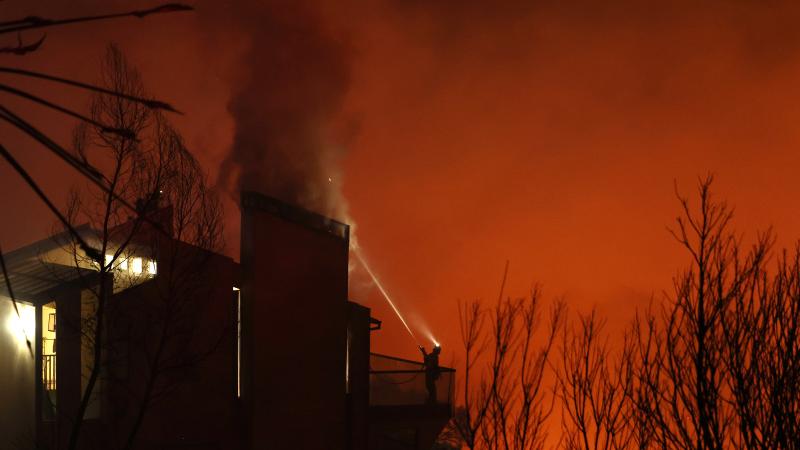Hoyer: 'We don't need highly secure technology' to start remote video voting on bills
The House is expected to vote on allowing 'proxy votes' for legislation on Thursday but Hoyer argued that remote video voting is a better option
As House members prepare to return to Capitol Hill this week for a key vote, the chamber's second-ranking Democrat, Rep. Steny Hoyer, is still calling for video voting amid the coronavirus pandemic, saying that Congress does "not need highly secure technology" to start remote voting now.
Hoyer, the House majority leader, has taken a lead role in trying to find a secure remote voting option for members beyond appearing on the chamber floor to say "aye" or "nay."
"We don't need secret technology," Hoyer (D-Md.) said Tuesday on a conference call with reporters. "We don't need highly secure technology. Frankly, if I'm in my den here in St. Mary's County, and the (House) clerk is looking at me over FaceTime and I say, 'aye' and the clerk recognizes me then they mark me as 'aye.' I'm not asking anybody else to cast my vote for me. I'm casting it personally."
"I don't think, from a security standpoint – there's no secret in my vote. If I were in Washington I would be up on the board voting aye," he added.
Hoyer also said that he finds Zoom software to be "much better" than a cell phone call.
"I see you. You see me. You not only hear my answers but you see me giving those answers and I think it makes a difference," Hoyer said.
Concerns about the potential of spread of the coronavirus mounted on Capitol Hill after the Centers for Disease Control issued a recommendation to cancel large gatherings and group meetings. Some lawmakers have self-quarantined after coming in contact with someone who tested positive for COVID-19. Sen. Rand Paul (R-Ky.) announced last month he had tested positive for the virus.
Preventing the spread of COVID-19 has prompted lawmakers to look for alternatives to the traditional in-person voting method.
The House is expected to vote by Thursday on "proxy voting" for legislation – a move Hoyer called an "interim step" toward remote video voting. The House has to formally vote on any changes to voting procedures for legislation.
A proxy vote is a vote cast on behalf of another lawmaker. Proxy votes are currently permitted in House committees but not for final votes on bills.
The 435-seat House is also likely to vote Thursday on a bill to increase the Paycheck Protection Program funding by $250 billion as well as increase funding for hospitals and COVID-19 testing.
Hoyer expects "over half" of House members to show up in-person to vote. He predicted the final vote on that legislation known as "coronavirus phase 3.5" will be a recorded vote rather than a voice vote. The House passed the $2.2 trillion CARES Act, the third coronavirus relief package, by a voice vote last month.
"We are asking every member to return who can return and we hope that is a large number," Hoyer said. "We're not ordering members to come back. We do expect sufficient members to come back so we can have a quorum and because there are a significant number of Republicans who want to vote on this. We believe the probability is there will be an actual vote on the passage of this package."
Hoyer offered a full endorsement for adopting remote voting capabilities in a letter he wrote on Tuesday to House Rules Committee Chairman Jim McGovern (D-Mass.) and House Administration Committee Chair Zoe Lofgren (D-Calif).
"I have already indicated my clear preference for voting by the use of video-conferencing technology that millions of Americans now use to conduct business,” he wrote. "While any distance-voting is less optimal than in-person voting or debating in committee or on the Floor of the House, the sound and image of the Member doing so virtually is far superior to the utilization of proxies."
Hoyer emphasized that the House "must put in place procedures to allow committees to do their work in full," which includes committee markups and hearings.
"We must update our rules explicitly to allow remote committee proceedings or change the rules to define “present” in a way that allows for Members participation through an approved video-conferencing platform," he wrote.














